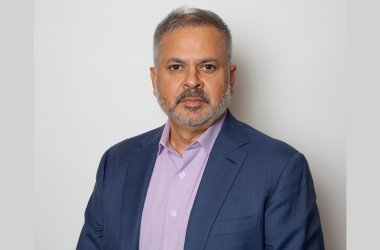
Founder and CEO Apu Pavithran outlines how Hexnode’s new UAE-based infrastructure reinforces data sovereignty, compliance, and customer trust.
Data sovereignty and localisation requirements are rapidly shaping the way enterprises across the Middle East manage and store information. For Hexnode, the award-winning Unified Endpoint Management (UEM) platform, the launch of a UAE-based data centre represents more than a technical milestone – it is a strategic commitment to compliance, trust, and regional growth.
Apu Pavithran, Founder and CEO of Hexnode, discusses how the company’s new AWS-hosted facility addresses evolving regulations, supports high-compliance sectors such as government, finance and healthcare, and sets the stage for expansion across neighbouring GCC markets.
Interview Excerpts:
How will the local data centre improve the user experience for Hexnode’s customers in terms of onboarding, support, and regional customisation?
With the digital frontier rapidly expanding in the UAE, it was only a matter of time before data safety regulations started popping up. Laws like the Personal Data Protection Law (PDPL) focus on safeguarding personal data, while industry-specific rules, particularly in government and healthcare, go a step further by mandating that data must remain within national borders. And this is only the beginning. As the country’s data sovereignty framework matures, we can expect even stricter requirements around data localisation. For organisations operating in the UAE, that makes local data hosting more than just a technical choice; it becomes a critical assurance of compliance and trust that offshore hosting simply can’t provide. For Hexnode customers, the local AWS-hosted data centre means that their data remains within the country’s borders, under the purview of UAE regulations. This addresses a critical concern for industries like government, healthcare, and finance, where compliance with national data laws is as important as the technology itself. Furthermore, customers knowing that their data is staying local and in compliance with their legislation helps build long-term confidence in Hexnode as a solution. And of course, the reduced latency and faster provisioning that local hosting provides are surely an added bonus.
What challenges did Hexnode face during the planning and deployment of the UAE data centre, and how were they overcome?
We were already familiar with using the AWS infrastructure. So, instead of taking on the enormous costs and time requirements of designing and maintaining our own data centre, we made a deliberate choice to host on AWS’s in-region cloud. This approach gave us two key advantages—first, speed to market. We’ve been noticing the customer requirements on a local hosting setup due to the data sovereignty requirements, and AWS allowed us to deliver on that need far faster than if we had gone the traditional route. Second, credibility. AWS already has a wide range of certifications and compliance frameworks, which means we can confidently offer a secure and compliant service without having to rebuild those assurances ourselves. This decision reflects a broader philosophy: our focus is not only on reinventing infrastructure, but on delivering endpoint management solutions that align with the data privacy priorities of the regions we serve.
How is Hexnode planning to leverage the UAE data centre to accelerate growth across neighbouring GCC markets?
The UAE is widely recognised as the business and technology hub of the GCC, and our data centre here serves as both a foundation and a showcase for the region. By establishing a strong and compliant presence in the UAE, we are able to demonstrate our commitment to meeting local regulatory standards and providing enterprise-grade reliability, both of which are top priorities for organisations in this part of the world. From a growth perspective, this infrastructure also gives us a competitive edge. While organisations in neighboring GCC countries can also take advantage of the UAE infrastructure, the full benefits of data sovereignty only come into play when data is hosted within their own national borders. For some sectors, especially government and finance, that distinction matters a great deal. This is where our long-term vision becomes important.
“The UAE centre is not just about serving one country; it’s about signaling that Hexnode is committed to respecting data sovereignty and building infrastructure in line with the regulations of the regions where our customers operate. “
What future enhancements or regional expansions are planned following the launch of this data centre, and how will they complement your current offering?
The UAE is the first step, but not the last. Data sovereignty isn’t a static requirement. It evolves as regulations change, and both enterprises and governments are becoming more vigilant about where and how their data is stored. Currently, we’re planning to expand to other countries in the Middle East, like Saudi Arabia and Qatar, in line with customer demand, and the same applies globally.
What’s clear is that data privacy is no longer just a regulatory checkbox. It’s a business differentiator. Customers are choosing vendors based not only on functionality, but also on their ability to meet compliance requirements without compromise. By continuing to invest in local infrastructure, we’re making a long-term commitment to being that trusted partner.
Each new data centre not only enhances performance but also ensures Hexnode can adapt its offerings to the unique regulatory environments of individual GCC nations. Over time, this regional expansion strategy allows us to move from simply being a provider of UEM solutions to being a deeply integrated partner in the digital transformation of the Middle East.





